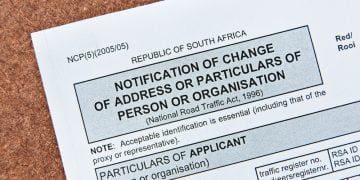It’s time to move. Literally. As our daily affairs keep us very busy and occupied a new, less common challenge arises. Moving into a home and using a bank-financed mortgage to buy the house.
The house search is underway. While reviewing multiple listings, indulging in online tours of houses and in-person visits to those which invite a closer look, the home selection process can be exhilarating, filled with imaginative fun and excitement.
But shopping for a mortgage? A little less so.
Preparing to move into your next home will require a fair amount of mind-taxing endurance to get through the seemingly countless number of forms and pages of documents to review. Daunting as it is this can be done. Here is something to do which will make the process smoother and in the long run more economical.
First, reach out to a mortgage broker. These people are experts at finding financing for buyers, often from funding companies new to you. In other words, don’t expect to hear the names of big commercial banks that are recognized by everyone for the sports arenas they sponsor or the amount of advertising they produce. These banks might be the best option, but usually only for those of us who can breeze through what otherwise seem to be rigorous and inflexible lending requirements.
Brokers know where to find lending sources that are far more cooperative in flexing their lending requirements. Not everyone has 20% or more of the purchase price to deposit. Even for those who do, that alone no longer assures an instant mortgage approval like it once did. Since the “Emergency Economic Stabilization Act of 2008” whereby the Federal government provided a $700 billion bailout to buy mortgage-backed securities that were in danger of defaulting, federal regulators imposed much stricter capital requirements on banks issuing mortgages. Speculative mortgages loosely based on the assumption that all real estate values must perpetually rise are gone. Buyers have to qualify.
It turns out this is a wonderfully effective tool for would be home buyers to have.
A pre-qualified mortgage, which your broker helps you obtain.
Obtaining this prequalification immediately earns you the attention of sellers and their realtors. Holders of these are not “just-looking” – they’re in the market and ready to purchase. When you or your realtor wind up negotiating a fair market value (FMV) price, (which most people do) having this with you gives you far greater leverage than someone who hasn’t prequalified. For sellers that are looking to sell quickly, this instrument might compel them to offer a prequalified buyer a discounted asking price; hoping this will help expedite the decision-making. Sellers are less apt to offer this incentive to someone who is not prequalified. Sellers don’t want to deal with prospective buyers who seem interested, and may go as far as making an otherwise acceptable offer to the seller; only to soon find out the prospective buyer failed to qualify.
Just like you are house shopping, comparing prices and other decision rules about affordability, you need not limit yourself to just one mortgage broker either. Be sure to comparison shop mortgage brokers. Don’t be surprised if one mortgage broker dismisses you until your circumstances change; while other brokers welcome your business.
Realize that just like realtors, mortgage brokers are salespeople too. The former sells the bricks and mortar where you’ll reside. The latter sells the financing to open those doors.















